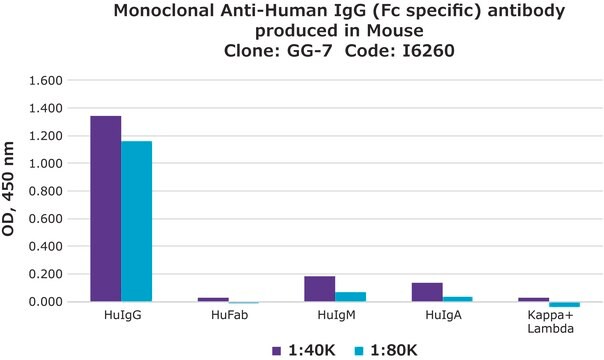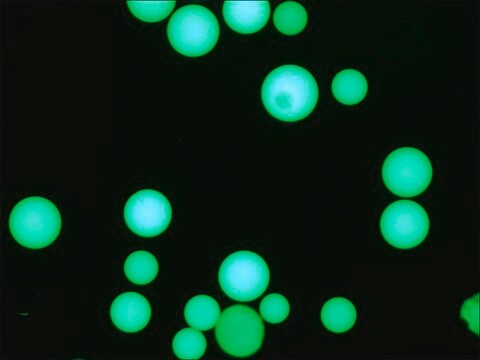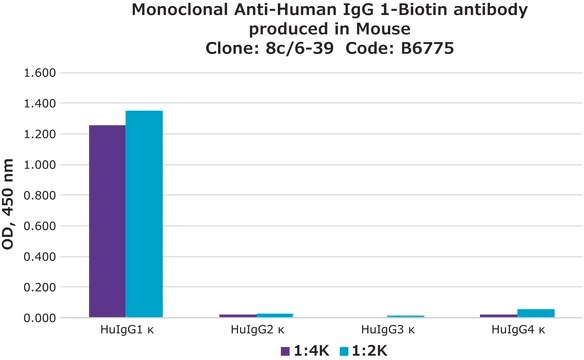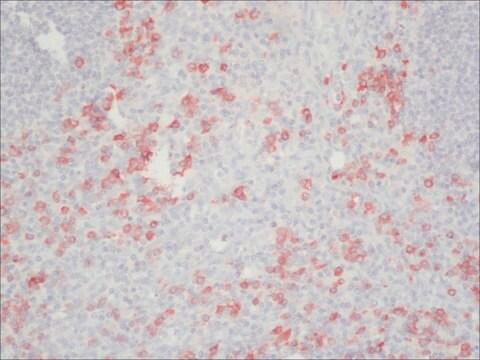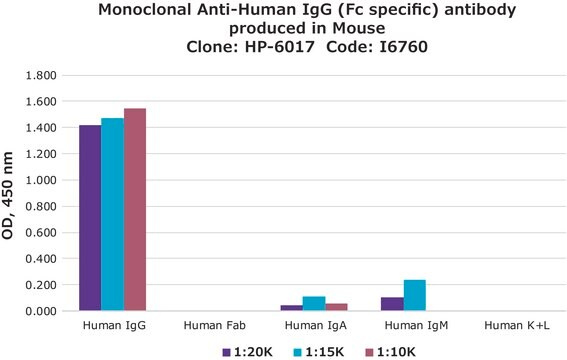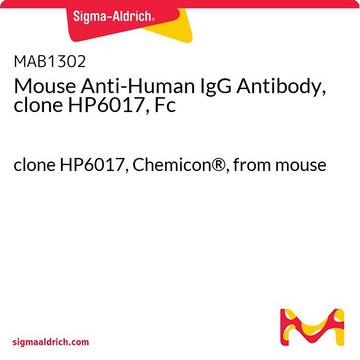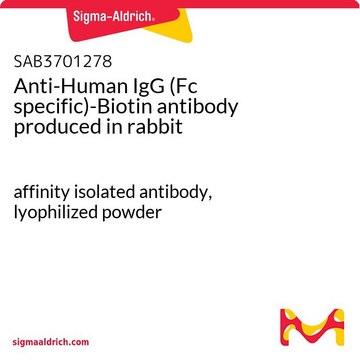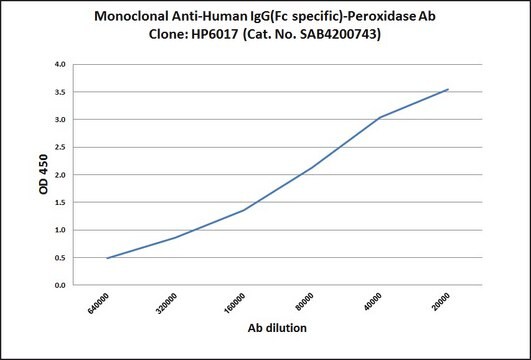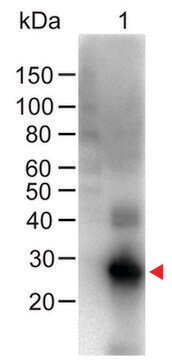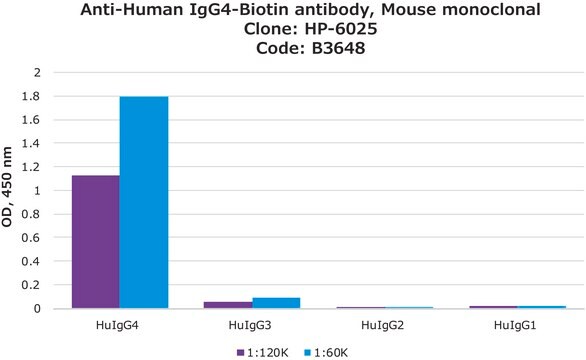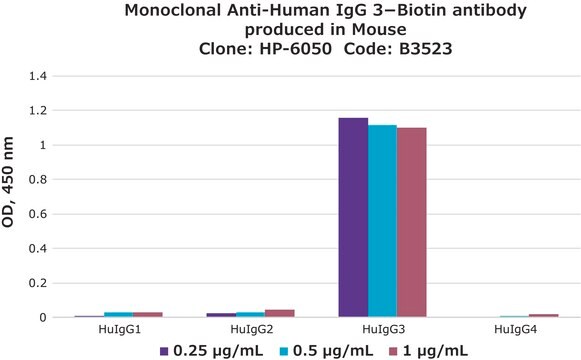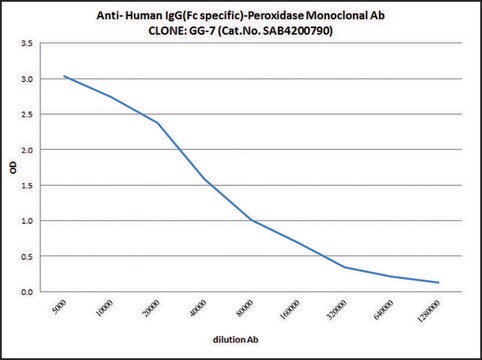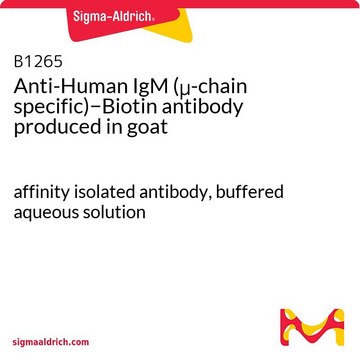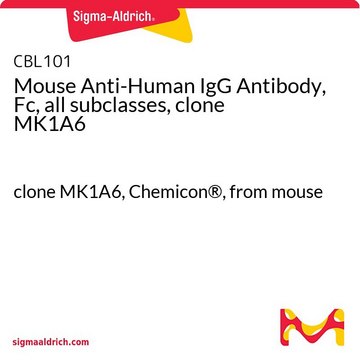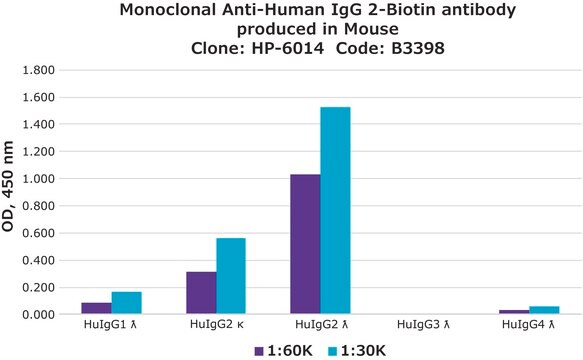B3773
Anti-Human IgG (Fc specific)−Biotin antibody, Mouse monoclonal
clone HP-6017, purified from hybridoma cell culture
Sinônimo(s):
Monoclonal Anti-Human IgG (Fc specific)
About This Item
Produtos recomendados
fonte biológica
mouse
conjugado
biotin conjugate
forma do anticorpo
purified immunoglobulin
tipo de produto de anticorpo
secondary antibodies
clone
HP-6017, monoclonal
Formulário
buffered aqueous solution
reatividade de espécies
rabbit, sheep, horse (IgG), goat, human
técnica(s)
direct ELISA: 1:80,000
Isotipo
IgG2a
Condições de expedição
dry ice
temperatura de armazenamento
−20°C
modificação pós-traducional do alvo
unmodified
Procurando produtos similares? Visita Guia de comparação de produtos
Descrição geral
Especificidade
Aplicação
Enzyme-linked immunosorbent assay (1 paper)
Ações bioquímicas/fisiológicas
forma física
Exoneração de responsabilidade
Não está encontrando o produto certo?
Experimente o nosso Ferramenta de seleção de produtos.
Código de classe de armazenamento
12 - Non Combustible Liquids
Classe de risco de água (WGK)
WGK 2
Ponto de fulgor (°F)
Not applicable
Ponto de fulgor (°C)
Not applicable
Escolha uma das versões mais recentes:
Já possui este produto?
Encontre a documentação dos produtos que você adquiriu recentemente na biblioteca de documentos.
Os clientes também visualizaram
Artigos
Antibody-based serology tests are useful in identifying subjects with an adaptive immune response to the SARS-CoV-2 virus. Anti-human immunoglobulin antibodies allow for quick and simple, yet reliable assays with easy readouts and can also be adapted for high-throughput screening.
Nossa equipe de cientistas tem experiência em todas as áreas de pesquisa, incluindo Life Sciences, ciência de materiais, síntese química, cromatografia, química analítica e muitas outras.
Entre em contato com a assistência técnica
